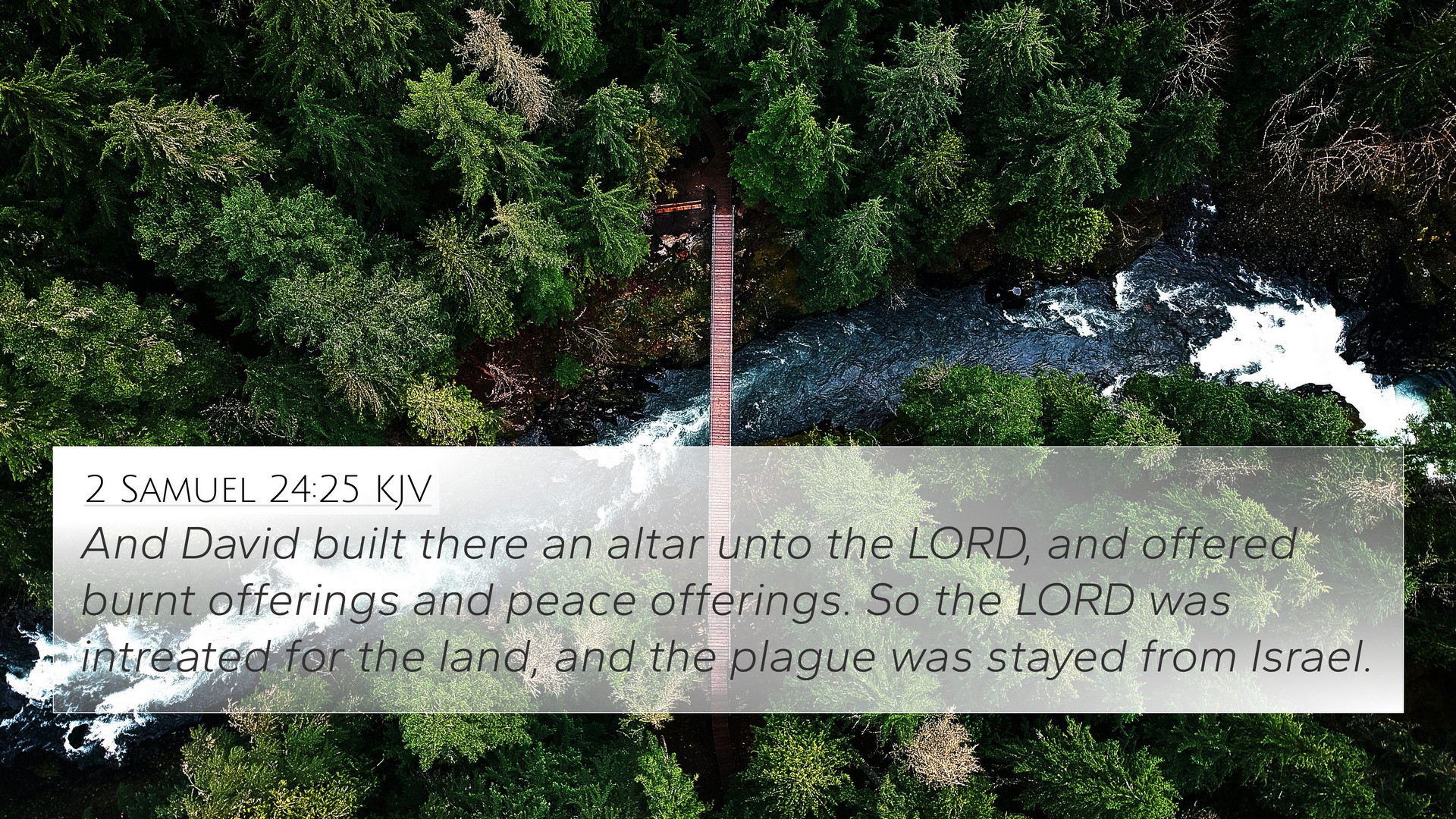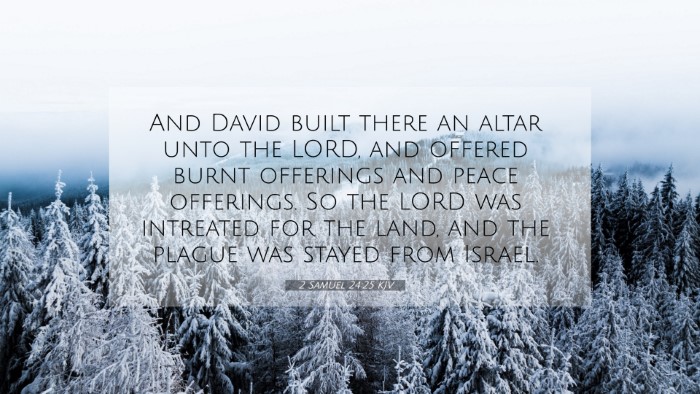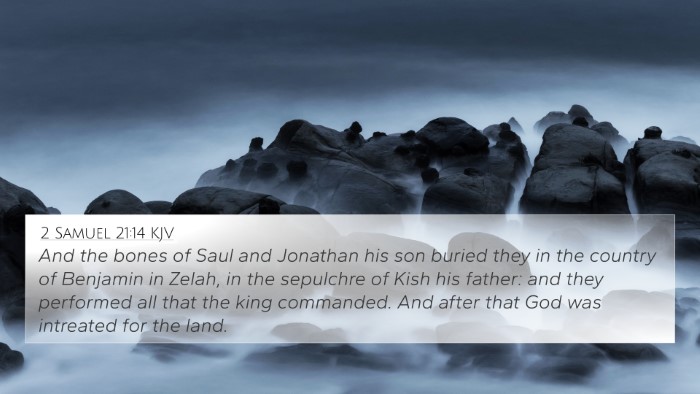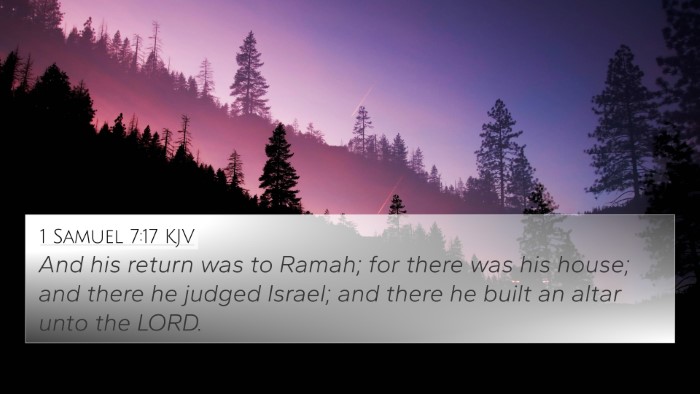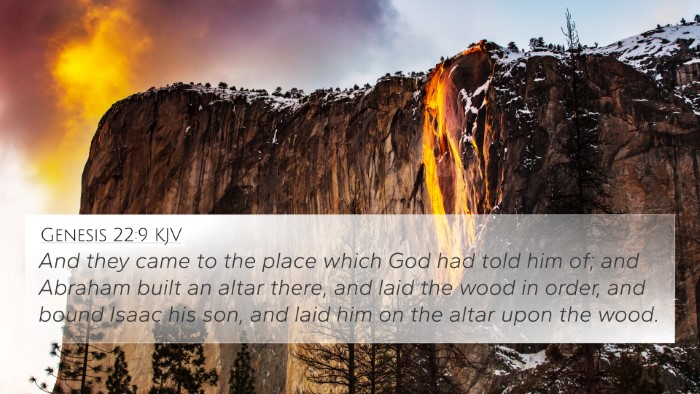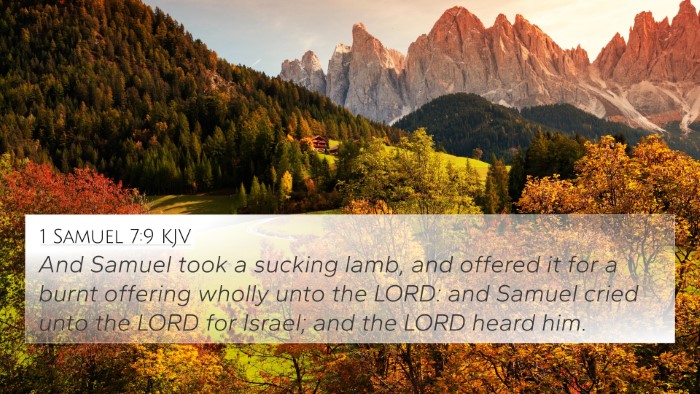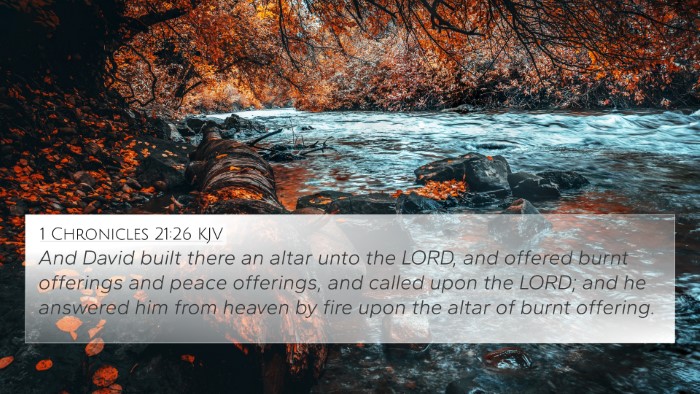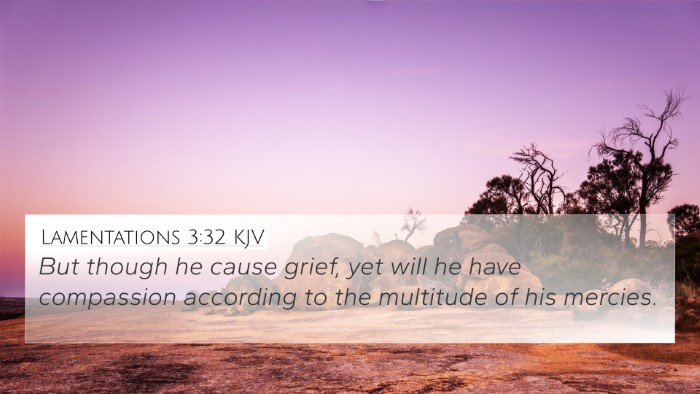Understanding 2 Samuel 24:25
Bible Verse: "And David built there an altar unto the LORD, and offered burnt offerings and peace offerings. So the LORD was entreated for the land, and the plague was stayed from Israel." - 2 Samuel 24:25
Summary of Key Themes
This passage is pivotal as it illustrates David's act of worship and obedience in response to a severe judgment upon Israel due to his census. These actions provide insight into themes of sacrifice, atonement, and God's mercy. Commentary insights reveal the multifaceted implications of David's offerings and how they establish a deeper connection between humanity and God.
Commentary Insights
- Matthew Henry: Explains that David's construction of the altar signifies his desire to reconcile with God. The burnt offerings symbolize total dedication, while peace offerings represent a desire for fellowship with God.
- Albert Barnes: Emphasizes the importance of this act as it marks the end of the plague. Barnes notes that God is merciful and responds to sincere repentance and offerings.
- Adam Clarke: Highlights that David's choice of the location for the altar is significant, as it foreshadows future events in Israel’s worship life, particularly at the Temple site.
Theological Significance
David’s building of the altar is a dramatic expression of humility before God, showcasing the necessity of proper worship. This act not only makes atonement for his sin but also acts as a communal resolution for Israel. The connection between sacrifice and divine mercy is a foundational biblical theme.
Bible Verse Cross-References
- Genesis 4:3-4 - The significance of offerings in worship.
- 1 Chronicles 21:26 - A parallel account of David’s altar and offerings.
- Leviticus 1:3-4 - The practice of burnt offerings and their intended purposes.
- Hebrews 9:22 - Insights into the necessity of blood for atonement.
- Romans 12:1 - The concept of presenting our bodies as living sacrifices.
- 2 Chronicles 3:1 - The future significance of the Temple built on the same site.
- Psalm 51:16-17 - The value of a broken spirit over sacrifice without repentance.
- Isaiah 53:10 - The prophetic significance of sacrifice in atoning for sin.
- Micah 6:6-8 - A reminder that God desires justice and humility alongside offerings.
- Matthew 5:23-24 - The necessity of reconciliation before offering gifts to God.
Inter-Biblical Dialogue
The relationship between Old and New Testament teachings can be exemplified by this verse, as it emphasizes the ongoing theme of sacrifice leading to divine favor and mercy. Understanding these connections can enhance Biblical interpretation, when we explore how similar themes manifest throughout Scripture.
Tools for Bible Cross-Referencing
- Utilizing a Bible concordance for thematic studies and verse connections.
- Employing a Bible cross-reference guide for deeper insights during study.
- Engaging in cross-reference Bible study methods to find links between passages.
Conclusion
2 Samuel 24:25 is not merely a historical narration but a consequential moment in Israel's spiritual journey. The understanding of this verse, as interpreted through comprehensive biblical cross-referencing, is vital for grasping the fullness of God's mercy and the role of sacrifices in biblical worship. It serves as a reminder of the power of repentance and the hope found in returning to God through sincere offerings and worship.
